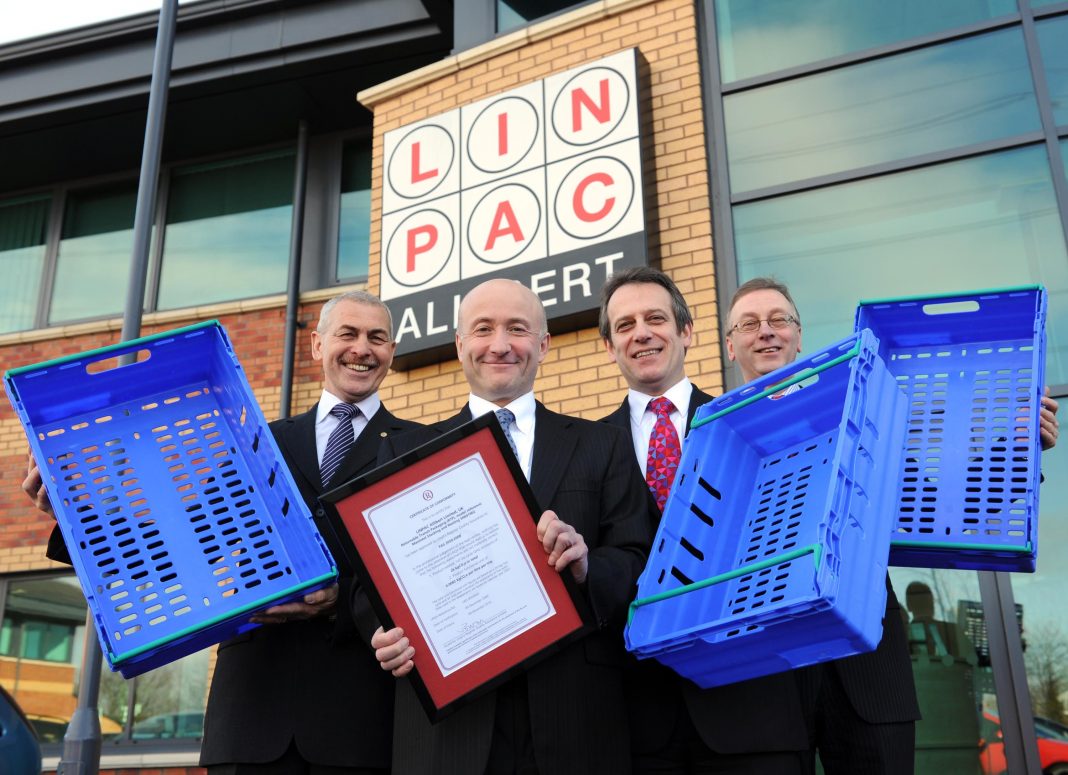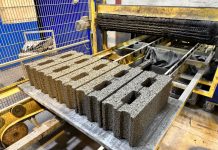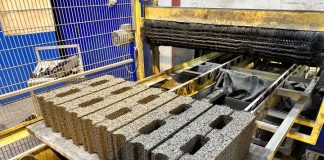LRQA verifies LINPAC Product Carbon Footprint
Lloyd’s Register Quality Assurance (LRQA) has verified LINPAC Allibert’s ’Maxinest’ distribution tray against Europe’s most authoritative product carbon footprinting (PCF) specification, PAS 2050.
LINPAC Allibert’s carbon footprint assessment was conducted by Sustain according to PAS 2050 rules and regulations and verified by LRQA based on each crate performing 92 return trips (a 20 day cycle) over five years. The carbon footprint of the Maxinest was determined at 26 kgCO2e in total, or 0.0082 kgCO2e per litre per trip.
Sustain, the carbon reduction company, has been working with LINPAC Allibert, the first organisation in the transit packaging and supply chain solution sector to have the full life cycle carbon footprint of a specific product determined and independently verified by a recognised certification body.
The PAS 2050 certificate was presented by LRQA’s managing director, Mike James. Accepting the certificate, Danilo Oliynik, LINPAC Allibert’s commercial director, said: “We are delighted to be the first company to receive this certificate from LRQA. It provides tangible, independently verified data that will help our customers to reduce their carbon footprint by exploiting the lower carbon footprint of plastic returnable transit packaging.”
Mike James added: “The importance of independently verified carbon footprint data will continue to grow, as future educated consumers begin to base their purchasing decisions on the transparency and credibility of environmental data from organisations and products.”
Part of the international LINPAC Group, LINPAC Allibert manufacture Europe’s largest range of reusable plastic containers and pallets for storage, handling and distribution. LINPAC Allibert’s products can be used again and again, helping their customers comply with packaging waste regulations, reduce their carbon footprint and save money.
LINPAC’s Maxinest product is a re-usable plastic tray employed in a wide range of industrial sectors, but probably best known for its role in transporting food products to point-of-sale by the UK’s major grocery retailers.
Published in October 2008, PAS 2050 provides a specification for the assessment of the life cycle Greenhouse Gas emissions of goods and services, allowing organisations to understand their total carbon impact throughout their supply chain. Both Sustain and LRQA were consulted during the development of the PAS 2050 and LRQA is currently participating in the United Kingdom Accreditation Service (UKAS) pilot programme for the accreditation of verifiers for PAS 2050.
Commenting on the benefits of being verified to the PAS 2050 specification, LINPAC Allibert’s Simon Mendes said: “Internally, the process has helped us to identify and improve performance along the supply chain. Externally, LRQA verification delivers confidence and trust in the data so that we can now help customers to achieve their own environmental targets.”
Looking forward, Paul Smith, LRQA’s climate change manager, said: “As more companies follow LINPAC Allibert’s lead, environmental performance will be enhanced and verified product carbon footprint data will become an increasingly important factor in both domestic and commercial purchasing decisions.”
The PCF assessment also highlighted ‘hotspots’ in the life cycle of a plastic crate from raw material extraction, manufacture, transport through the supply chain, washing and disposal, allowing LINPAC Allibert to review how to reduce carbon emissions in these areas.
Sustain’s Michael Hill stated: “PAS 2050 gives a good basis to work from but until an organisation gets the results verified, there will always be those who doubt the process. It’s important that we move towards a verified carbon footprint process so organisations can communicate the results with absolute confidence. This project is further evidence of Sustain being at the leading edge of product and services carbon footprinting.”
Ends
Words: 577
For further information, visit www.lrqa.com







